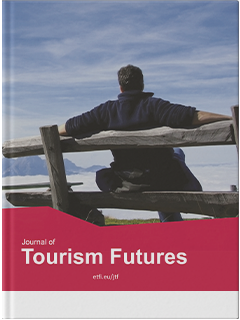生态目的地形象在旅游动机与生态旅游意愿关系中的调节作用
IF 6.6
Q1 HOSPITALITY, LEISURE, SPORT & TOURISM
引用次数: 3
摘要
目的研究生态目的地形象对旅游动机与生态旅游意向关系的调节作用。设计/方法/方法本研究采用方便抽样法开发研究样本,并采用多元数据分析方法对在越南进行的结构化问卷调查中收集的435个有效观察数据进行分析。结果生态目的地形象显著强化了刺激、逃避、求知和自我发展四种旅游动机对生态旅游意愿的影响。然而,生态目的地形象对社交动机与生态旅游意愿之间的联系的调节作用不显著。原创性/价值本研究首次揭示了生态目的地形象在强化旅游动机对生态旅游需求的影响中的作用。该研究提供了一个框架,根据不同类型的客户的内部旅行动机,细分与目的地形象相关的促销材料。该框架包括四个维度:(1)目的地图像反映刺激的促成因素;(2)目的地图像反映逃离日常生活的促成因素;(3)目的地图像反映求知的促成因素;(4)目的地图像反映个人发展的促成因素。本文章由计算机程序翻译,如有差异,请以英文原文为准。
The moderating role of eco-destination image in the travel motivations and ecotourism intention nexus
PurposeThis study investigates the moderating effect of eco-destination image on the relationships between travel motivations and ecotourism intention.Design/methodology/approachThe study employs the convenience sampling method to develop a research sample, and the multivariate data analysis method to analyse the data of 435 valid observations collected in the structured questionnaire survey conducted in Vietnam.FindingsThe paper reports that the eco-destination image significantly strengthens the effects of four travel motives (i.e. excitement, escape, knowledge-seeking and self-development) on ecotourism intention. However, the moderating impact of eco-destination image on the link between socialising motive and ecotourism intention is insignificant.Originality/valueThis study is the first to shed light on the role of eco-destination image in strengthening the effects of travel motivations on ecotourism demand. The study provides a framework for segmenting promotion materials associated with destination image based on different types of customers' internal travel motivations. The framework includes four dimensions: (1) destination image reflecting enablers of excitement, (2) destination image reflecting enablers of escaping from daily life routine, (3) destination image reflecting enablers of knowledge-seeking and (4) destination image reflecting enablers of personal development.
求助全文
通过发布文献求助,成功后即可免费获取论文全文。
去求助
来源期刊

Journal of Tourism Futures
HOSPITALITY, LEISURE, SPORT & TOURISM-
CiteScore
15.70
自引率
6.00%
发文量
64
审稿时长
34 weeks
期刊介绍:
 求助内容:
求助内容: 应助结果提醒方式:
应助结果提醒方式:


